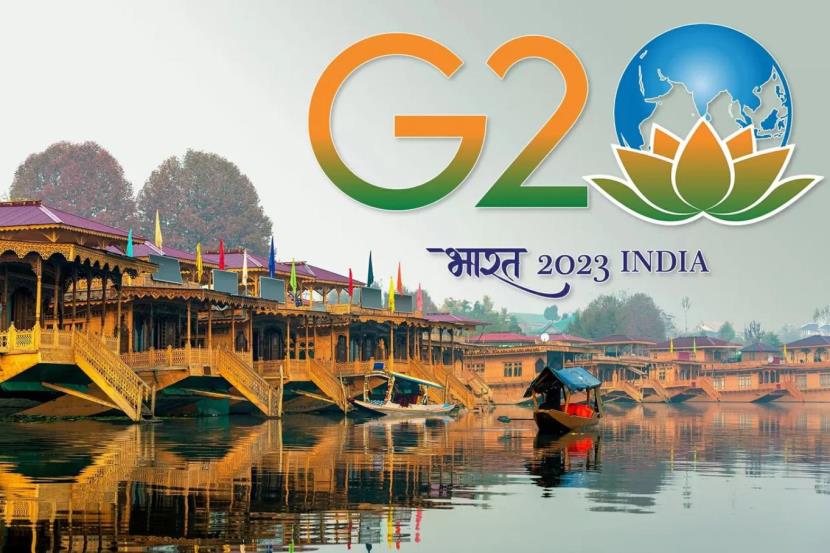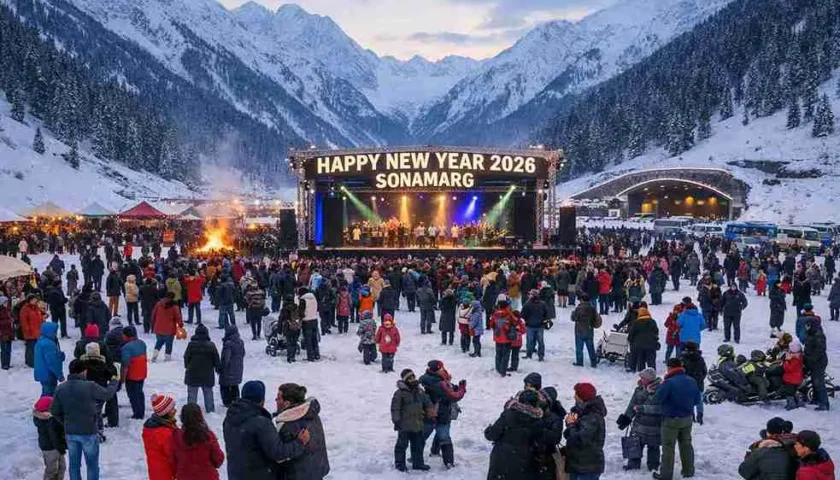As the G20 tourism working group meeting is due to take place in Srinagar, there has been a resurgence of confidence among the tourism stakeholders that foreign tourists would soon start travelling to Kashmir in great numbers.
On the shores of the Dal Lake, Sher-e-Kashmir International Conference Centre (SKICC) is all set to host this year’s largest international summit from May 22 to May 24.
To make the occasion attractive and historic, Srinagar has been transformed into a smart city. As plans are being finalised for the third meeting of the G20 tourism working group, Kashmir is getting ready to welcome visitors from a number of nations.
The G20 summit is anticipated to have a significant positive impact on trade and tourism in the area. The renowned Dal Lake is being decorated, and the Shikaras (open boats) are getting new paint jobs.
The hotel owners, travel agents, and other tourism industry professionals believe that this event would effectively market Kashmir as a tourist destination on a global scale. According to Kashmir Chamber of Commerce and Industries (KCCI) President Javid Ahmad Tenga, the international event is “big for the economy of Kashmir”.
Also Read: Discovering the Magnificent Lakes of Kashmir: A Must-See on your next Kashmir Trip
“Kashmir hasn’t seen much influx of high-end tourists from American and European countries in the last three decades. This event will convey a message to them about the region and, in turn, inspire confidence among the intending foreign tourists to visit Kashmir, which will not only boost the tourism sector but also promote our handicrafts, trade, and other economic segments,” he said.
Jammu and Kashmir Hoteliers Club Chairman Mushtaq Chaya hailed the G20 summit as encouraging for the region’s travel and tourist industry. “Numerous G20 countries now issue negative travel advisories for Kashmir. Once the event is hosted here, it will send out a message that the area is safe for people of those countries to visit. We are hopeful that our administration will be able to persuade them to remove any unfavourable advisories, which would have a significantly positive impact on our economy and the tourism industry.”
Kashmir Travel Agents Association (KTAA) President Farooq Kuthoo said that the G0 meeting was a positive indication of the region’s welcoming nature and was crucial to drawing in tourists from abroad.
“It will promote Kashmir as an international tourist destination as inbound tourists will return at a time when we are currently experiencing a healthy influx of domestic tourists,” he said.
Tourist Trade Interest Guild (TTIG) Chairman Bashir Ahmad said that though international visitors were eager to visit Kashmir, several foreign nations had issued negative warnings, forcing them to postpone their trip since they would not be provided with travel insurance in Kashmir. “There is optimism that after the G20 summit, many nations will remove their travel warnings, allowing visitors to visit Kashmir and benefiting from an insurance coverage that negative travel warnings prevent,” he said.
The tourism industry in Kashmir has faced several challenges in recent years due to political unrest and security concerns. This has resulted in a significant decline in foreign tourist arrivals, impacting the livelihoods of many locals who depend on tourism-related activities. However, the positive image projected during the G20 summit has instilled hope that the region’s tourism sector can experience a revival.
The government, along with various stakeholders, is working towards creating a favorable environment for tourism in Kashmir. Efforts are being made to improve infrastructure, enhance security measures, and promote the unique experiences that the valley offers. Additionally, collaborations with travel agencies, international airlines, and tourism boards are being explored to attract foreign tourists and ensure a seamless travel experience.
Also Read : Doodhpathri: An upcoming destination of Kashmir
The return of foreign tourists to Kashmir would not only benefit the local economy but also help in restoring normalcy and promoting cross-cultural understanding. It would provide opportunities for cultural exchange and bridge gaps between different communities. Furthermore, the influx of tourists would generate employment opportunities, particularly for the youth, and contribute to the overall development of the region.
While the optimism surrounding the return of foreign tourists is encouraging, it is important to address the challenges that hinder tourism growth in Kashmir. Ensuring the safety and security of visitors, maintaining the ecological balance, and offering high-quality tourism services are key factors that need attention. Sustainable tourism practices, community involvement, and preserving the region’s natural beauty should also be prioritized to ensure a responsible and long-lasting tourism industry.




